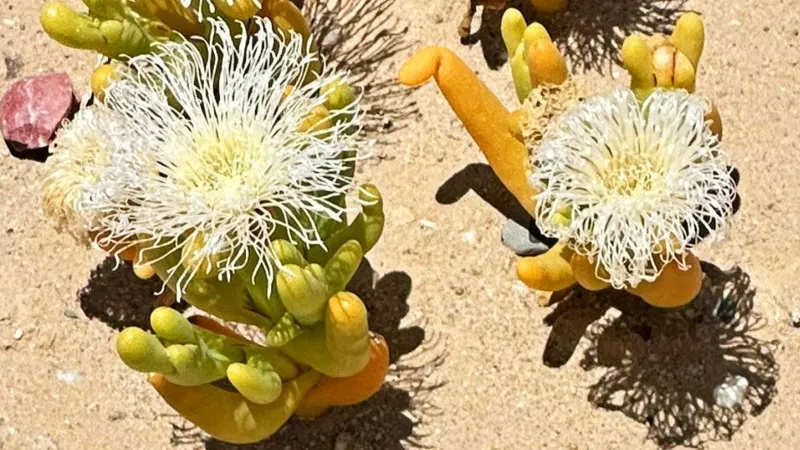
A biodiversity hotspot in a remote part of South Africa has become the hub of an illegal trade in protected plant species, with organised crime groups capitalising on overseas demand.
“They’ve not just stolen our land or our plants, they’ve stolen our heritage as well,” a livestock farmer angrily tells the BBC, as she expresses dismay at the social and ecological crisis that the poaching has caused.
Most of the plants in question are a variety known as succulents, named for their ability to hold water and survive in arid climates.
Many of the world’s succulent species are only found in the Succulent Karoo desert, which spans South Africa and Namibia.
Succulent species range in size, shape and colour – some look like small multi-coloured buttons and some look like cacti, sprouting colourful flowers at certain times of the year.
While these varieties can be cultivated in nurseries, global demand is also fuelling the poaching of these plants from the wild which are then smuggled and sold online to buyers in the US, Europe and East Asia.
In Kamieskroon, a small town in the centre of South Africa’s Namaqualand region, the rolling hills have become a haven for poachers.
Some of the species are highly localised, and so can be wiped out by just a small amount of poaching.
“In South Africa, we know already of seven species that has been wiped out completely and there are certainly more species that will go extinct very soon,” says Pieter van Wyk, a nursery curator at the /Ai /Ais-Richtersveld Transfrontier Park.
It is hard to obtain figures for how many plants are being poached, but the non-governmental organisation Traffic reports that 1.6 million illegally harvested succulents were seized by South Africa’s law enforcement agencies between 2019 and 2024. This only represents the contraband that was detected, so the true figure is likely to be far higher.
The South African government is well aware of the problem, and unveiled a strategy in 2022 to combat poaching. It includes running community programmes about the need to protect the environment.







